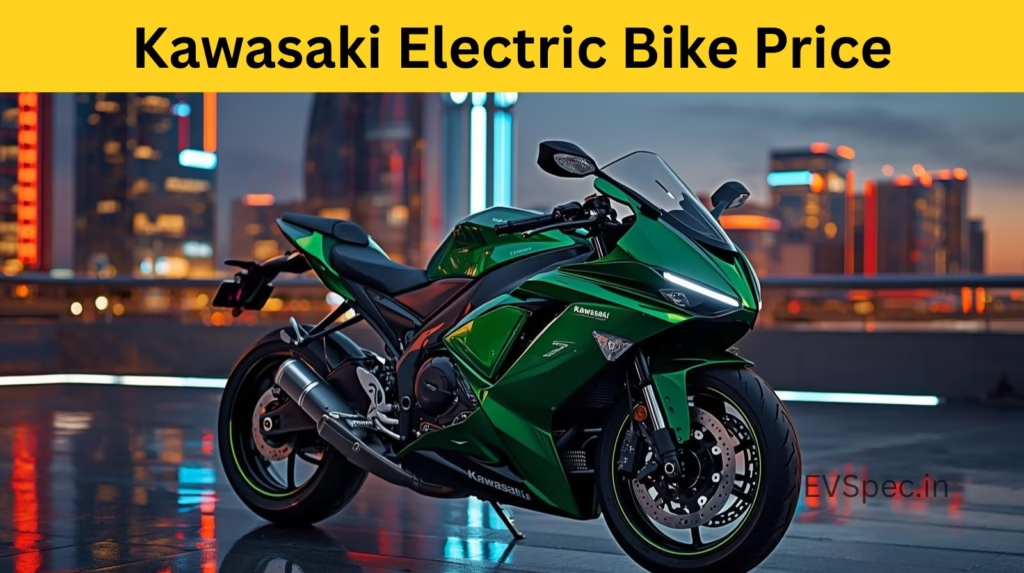
Kawasaki Electric Bike Price in India 2025: Detailed Guide on Models, Features, and Market Outlook
The Indian electric bike market is rapidly evolving, with renowned manufacturers stepping into the green mobility space. Kawasaki, a global name famed for high-performance motorcycles, is now making waves in India with its electric bike ventures. For Indian riders seeking premium electric motorcycles, understanding the Kawasaki electric bike price in India, upcoming models, and features is essential.
This article offers a comprehensive overview of Kawasaki’s electric bike portfolio, pricing ranges, launch timelines, features, and competitive landscape as of 2025, ensuring prospective buyers and enthusiasts have detailed insights.
Kawasaki Electric Bike Price in India: What Should Buyers Expect?
Kawasaki’s flagship electric offering in India is the Kawasaki Z e-1, an electric motorcycle blending the company’s legendary engineering with modern electric propulsion systems. The ^Kawasaki electric bike price in India^ for the Z e-1 is expected to be around ₹6.07 lakh (ex-showroom), marking Kawasaki’s competitive entry into the premium electric two-wheeler segment. This price positions the Z e-1 well above budget electric scooters but targets riders looking for performance, build quality, and innovative tech.
Existing and potential owners eager for Kawasaki electric motorcycles will find that the price corresponds to the brand’s legacy, offering enhanced ride dynamics and premium design.
Kawasaki Electric Bike Models and Price Range
The Kawasaki Z e-1 remains the company’s primary focus in electric mobility for India. Expected launch timelines suggest an early arrival towards the end of 2025. Apart from this electric motorcycle, Kawasaki’s core portfolio in India consists of several high-performance petrol bikes with competitive pricing:
- Kawasaki Ninja ZX-10R: Priced around ₹18.5 lakh
- Kawasaki Z900: ₹9.38 lakh to ₹9.52 lakh
- Kawasaki Ninja 300: ₹3.43 lakh
- Kawasaki Versys X 300: ₹3.49 lakh
- Kawasaki KLX230: Between ₹1.8 lakh to ₹2.99 lakh
While these are petrol bikes, the imminent launch of the Kawasaki electric bike reflects the company’s commitment to sustainability and future-focused innovation.
Key Features of Kawasaki Electric Bikes
The Kawasaki Z e-1 electric bike integrates the brand’s advanced technology with electric efficiency. Some anticipated highlights of the electric model include:
- Battery and Motor: Powered by a lithium-ion battery pack paired with a high-torque motor offering instant acceleration and smooth power delivery.
- Ride Dynamics: State-of-the-art suspension and braking systems optimized for safety and handling.
- Regenerative Braking: Technology to extend the riding range and improve energy efficiency.
- Design: Modern styling inspired by Kawasaki’s traditional bike architecture, with electric-specific design cues.
- Connectivity and Safety: Features such as ABS, traction control, and potential smart connectivity features for enhanced user experience.
Such features exemplify Kawasaki’s goal to provide premium electric mobility with the thrill and reliability its brand is known for.
Is There a Kawasaki Electric Scooter Price Available?
Currently, Kawasaki does not have an electric scooter lineup in India. The focus is primarily on electric motorcycles, specifically the Z e-1. While the possibility of electric scooters under Kawasaki’s brand in the future exists, as of 2025, there are no concrete launches or pricing information regarding a Kawasaki electric scooter price in India.
How Does Kawasaki Electric Bike Compare To Other Electric Two-Wheelers?
Kawasaki’s electric bike offerings target the premium segment, priced notably higher than common electric scooters but comparable to other electric motorcycles in the market. The Z e-1 appeals to riders seeking performance and brand prestige, rather than budget commuting options.
By comparison, brands like Ather, Ola, and TVS focus more on commuter scooters priced between ₹70,000 to ₹1.5 lakh. Kawasaki’s higher entry price reflects its focus on power, ride quality, and a more performance-oriented experience.
Kawasaki Electric Bike Price Table: Overview
| Model | Price Range (₹ Lakhs, Ex-Showroom) | Segment |
| Kawasaki Z e-1 | 6.07+ | Electric Motorcycle |
| Kawasaki Ninja ZX-10R | 18.5 | Petrol Superbike |
| Kawasaki Z900 | 9.38 – 9.52 | Petrol Naked Bike |
| Kawasaki Ninja 300 | 3.43 | Petrol Sportbike |
| Kawasaki Versys X300 | 3.49 | Petrol Adventure |
Pros and Cons of Owning a Kawasaki Electric Bike in India
Pros
- Cutting-edge electric powertrain with instant torque
- Kawasaki brand legacy and trust
- Superior build quality and performance dynamics
- Lower carbon footprint and operational cost
- Increasingly accessible charging network
Cons
- Higher initial purchase price compared to electric scooters
- Limited availability and service centers initially
- Awaiting broader acceptance and consumer education on electric motorcycles
FAQs
Q1: What is the expected price of Kawasaki’s electric bike in India?
A: The Kawasaki Z e-1 is expected to be priced around ₹6.07 lakh ex-showroom.
Q2: When will the Kawasaki electric bike be available in India?
A: The launch is projected in November 2025.
Q3: Does Kawasaki offer electric scooters in India?
A: Not currently; Kawasaki focuses on electric motorcycles like the Z e-1.
Q4: What features make Kawasaki electric bikes stand out?
A: Instant torque motor, regenerative braking, advanced suspension systems, and premium design.
Q5: How does Kawasaki electric bike pricing compare with competitors?
A: Priced on the premium side but justified by performance and brand reputation.
Closing Thoughts
The Kawasaki electric bike price in India signals a strong move towards premium electric two-wheelers, catering to enthusiasts and environmentally conscious riders. With a launch slated for late 2025, Kawasaki is ready to offer an electric alternative without compromising on performance, build quality, or cutting-edge tech.
For Indian consumers seeking a premium electric riding experience with reliable brand backing, the Kawasaki Z e-1 is a promising candidate, blending style, sustainability, and signature Kawasaki performance.